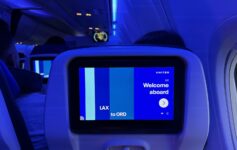Although AA is spinning the announcement that they will be suspending non-stop service between San Francisco and Boston, claiming that they are simply focusing on their hubs in Los Angeles, Dallas, Chicago, New York, and Miami, any astute observer can see that AA has lost the war against JetBlue, Virgin America, and United on this competitive route.
As Scott McCartney points out, the story of SFO-BOS is a familiar one the last decade in the airline business. Low-cost carriers move in, forcing prices down. Legacy carriers with higher costs suffer and eventually pull out.
Between 1998 and 2009, United and American were essentially the only two non-stop operators on the route (JetBlue offered limited seasonal service). In 2009, Virgin entered the market with daily non-stop flights between the two cities. Then JetBlue began year-around daily service between BOS and SFO. Suddenly, 30,000 seats a month on that route ticked up 53,000 seats a month. Supply outpaced demand and AA becomes the latest casualty to the "low-cost" (read: non-Legacy) revolution.
I think United is the big winner here. Yes, Virgin does have a competitive first class product that will no doubt attract some of AA’s customers. But UA, also hubbed in SFO with a domestic and international route network much more robust than VX, stands to gain more business flyers who will choose a non-stop flight over a connection in Chicago or Dallas on American.
AA’s exodus from the market will likely mean higher ticket prices on United, JetBlue, and Virgin, so I’m not happy with this news. But this announcement is not surprising.




Leave a Reply